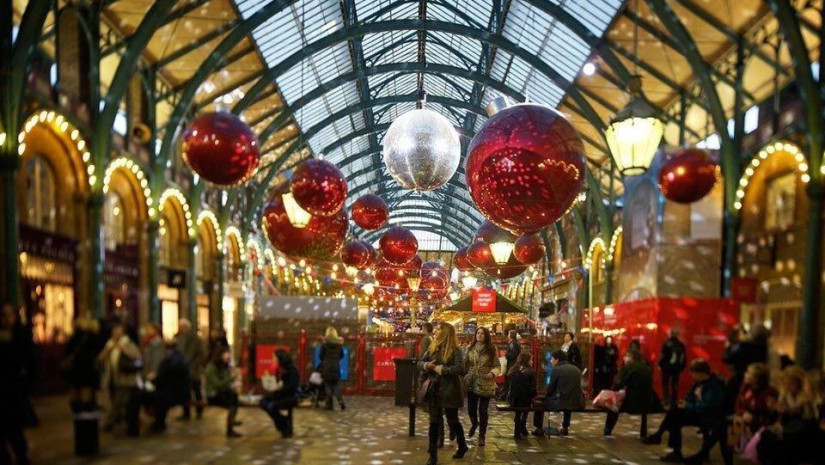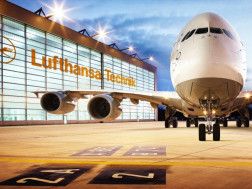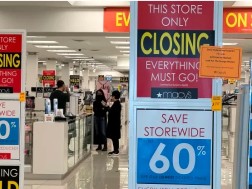In early November, the German Retail Association (HDE) appeared confident that retail sales across Europe's economic powerhouse would increase by 2% in the November-December period, compared with the same two months last year. Revenues, the industry body predicted, would most likely come in at €112 billion ($126 billion) for the two months.
Based on the results of a recent poll, HDE also said Germans would spend an average of €273 this year on Christmas presents, slightly up from last year's spending figures.
Only two weeks on, those forecasts are no longer worth the paper they're written on. A dramatic rise in COVID infections across Germany has led to renewed restrictions which have already begun to pinch retailers in some states.
De facto lockdown
The southern state of Bavaria has a de facto lockdown in place, resulting in temporary closures of most retail stores. Saxony in easter Germany has also imposed stricter measures that only allow fully vaccinated or fully recovered citizens to go shopping in brick-and-mortar stores (grocery stores are not affected).
The COVID situation is so dramatic that German Health Minister Jens Spahn doesn't even rule out a complete nationwide lockdown anymore.
That is certainly something German retailers would hate to see. In Strausberg, a town of roughly 27,000 inhabitants and located a few miles east of Berlin, the local shopping mall has never exactly bustled with life since a fire gutted part of the place a couple of years ago.
Still reeling from the first blow
The retailers that survived the inferno had been struggling to attract customers even before the first coronavirus-caused lockdown came upon them in March 2020. The forced closure only made matters worse for them as the head of a Herzog & Bräuer lingerie store recalls:
"When the first coronavirus lockdown hit us in 2020, we suffered badly," she told DW. "The thing is that we really never fully recovered when it was over, the reason being that so many more people realized how convenient it is to shop online; so many just never returned to our brick-and-mortar shops."
She said she was alarmed by the steep rise in COVID cases and the restrictions customers would face.
"We haven't really stocked for the Christmas season as we don't expect a huge run on our shops in the weeks ahead because of all this coronavirus-caused uncertainty," she explained. "And had we decided to stock up, we'd certainly have faced some supply bottlenecks as markets are not yet back to normal."
A vendor in an Ernsting's family store specializing in children's clothing hopes that people will still be able to shop in the weeks ahead.
"Of course, the first lockdown hit us hard, but we've managed quite well ever since," she said. "Children's clothes and toys are more or less crisisproof items, and even though many of our customers buy more online, they usually pick up their orders here in our store and buy something else while visiting."
Discrimination or necessity?
Strausberg is located in the German state of Brandenburg which may easily follow the lead of others and could soon bar all those not vaccinated or recovered from entering brick-and-mortar shops. The Ernsting's family vendor doesn't think much of such a policy, though.
"In my eyes, only letting in those who are fully vaccinated or recovered from COVID-19 would mean to discriminate against those who cannot be vaccinated for other health reasons," she argued, "and we shouldn't have an interest in splitting our society even further."
Her view was shared by her colleague from Herzog & Bräuer.
"Tightening current regulations further would be a slap in our face — we've really adhered to all the rules in place including distancing rules and mask norms, and we cannot afford to see our slim revenues shrink even more," she said. "There's no logic in restricting shopping again while at the same time allowing people to spend hours on packed trains or buses."
Saxony is different
Further south in the state of Saxony, coronavirus infections have gone up even more dramatically than in Brandenburg, seeing the regional government take harsh measures like closing hotels and restaurants again and restricting shopping to those vaccinated or recovered from COVID-19.
Two days before these measures went into effect, a huge shopping center in the Saxon town of Chemnitz was still bustling with customers who looked completely unfazed by any potential health hazards lurking around.
A couple running a stand full of woodcarving items told DW they wouldn't let their entrepreneurial spirits get dampened so easily.
"We've seen a remarkable tick up in trade and revenues since the last lockdown hit the country," the woman said. "So that's made up largely for the losses we incurred during the lockdown. And let's be fair — we received quite a bit of state aid to see us through."
Her companion said he wasn't afraid of more restrictions that could follow.
"You've got to roll with the punches," he said. "I can't understand the folks who rely so heavily on Christmas markets and Christmas season sales in general, that's a short-sighted approach, I believe."
The man elaborated one always had to be prepared for things to get worse, so you just needed to be a bit more flexible. "We've diversified our product range, that is we're also selling food items now— and that you can always do, pandemic or no pandemic," he explained.
Back in Strausberg, retailers appear a lot more worried.
"Let's pray that we won't follow Austria's lead and impose a complete lockdown again," said a seller in reference to Germany's neighboring country which introduced a full lockdown on Monday.
"Many retailers would most likely not survive that and would have to file for insolvency."
















